Research Residencies
These are centralised through the Study Centre, with the Museo Reina Sofia welcoming, facilitating and accompanying different research residencies related to the Museo’s programmes and departments, and in collaboration with other international cultural institutions. The aim is to foster dialogue between different areas of the institution and to progress reflections around critical questions of concern.
Open Calls
All Calls
The annual fellowship Studies Constellation invites key thinkers in the history of contemporary art and theory to develop and constellate an annual research project around some of the questions that encourage the intellectual engagement of art, culture, and the museum with the present.
The fellowship is conceived as a space for sustained, generative and expansive exchange that adopts different intensities and rhythms, combining in-person activities at the museum, including internal seminars and public presentations, with time for preparation, collection, rest and digestion outside the museum.
This programme is part of the commitment and responsibility of the Museo Reina Sofía's Study Directorship as a space for cultural production and exchange with the different research contexts in which it is involved.
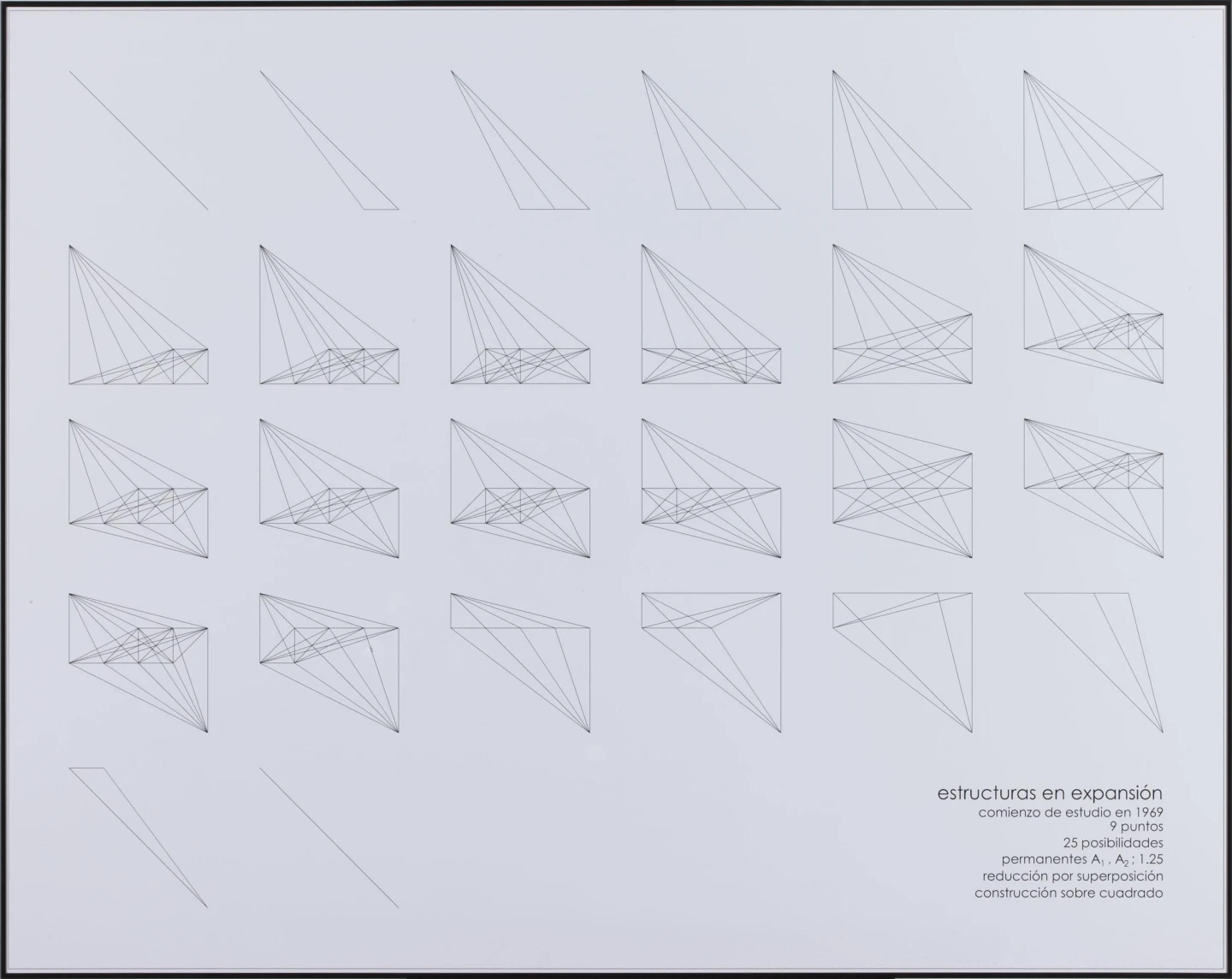
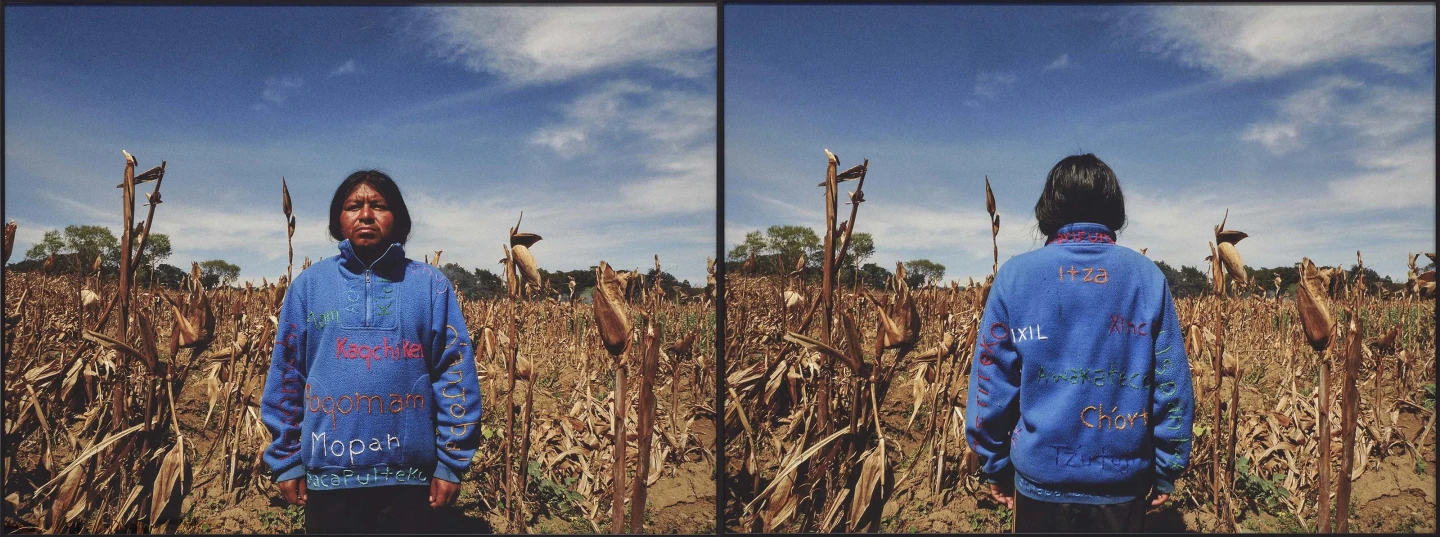
ICAC’s core programme invites a guest researcher of Central American origin to occupy the Institute’s annual residency, with the said candidate selected jointly by the Museo Reina Sofía and Mario Cader-Frech. The main goals of this nine-month residency are:
- To develop in-house research which explores in greater depth strands which define and run through Central American scenes and art history. This research will be supervised and supported by the Museo’s Study Centre, with different tools made available to the researcher.
- To encourage active exchanges with the team of the Museo Reina Sofía Collection.
- To work with the Museo Reina Sofía Library and Documentation team in order to enhance bibliographic holdings and documentation on Central American art.
The 2025 ICAC resident researcher is Patricio Majano, a curator, artist and lecturer from El Salvador.
Joaquim Jordà
Since 2022, the Museo Reina Sofía, FIDMarseille, and Doclisboa have been organizing this annual residency program aimed at filmmakers and artists who work in the field of film essay, experimental cinema and in all those manifestations shaping contemporary’s non-fiction cinema. The joint residency between a museum and two international film festivals offers the possibility of articulating different phases between the idea and the materialization of the audiovisual work. The objective of the program is to support the conception, development and production of film projects in the field of non-fiction cinema, finance their execution and partake in the international debate on this field of artistic endeavor.
Museum of the Commons is a four-year project (2023 to 2026) implemented by the confederation L’Internationale and financed by the European Union through the Creative Europe Programme (Grant Agreement 101100021). The proyect centres on three main focal points: the climate emergency, decolonial perspectives and situated institutionalism.
As a member of L’Internationale, Museo Reina Sofía calls for, amongst other activities, four research residences, distributed in two calls along the years 2024 and 2025. The first one calls for two residences, whose objective is to foster research through artistic and cultural practices and participation in research networks bound to Museum of the Commons – in particular to its first work line, which focuses on the current planetary climate crisis, the sustainability of institutional, artistic and cultural practices and the urgency to transform our politics, societies, cultures and ways of living towards ecologically sustainable models.
The research lines proposed for this call are:
- Ecological, social and political sustainability of the cultural ecosystem,
- Food sovereignty and situated institutional practices such as community gardens and kitchens,
- Architecture as a lab for institutional and social sustainability,
- Diaspora and migrant communities, in particular as a result of climate change,
- Communal practices and political imagination.
In 2025, the Museo Reina Sofía will host a total of thirteen artistic research projects that offer new reflections on the institution’s activities, aims, and collections by drawing on its resources and discourses. The residencies are part of the Recovery, Transformation and Resilience Plan.
The research residencies aim to support artistic research processes, contributing to the strengthening and professionalization of cultural production. They also seek to promote, support, and make visible contemporary artistic practices, creating a space for cultural exchange and fostering social cohesion.
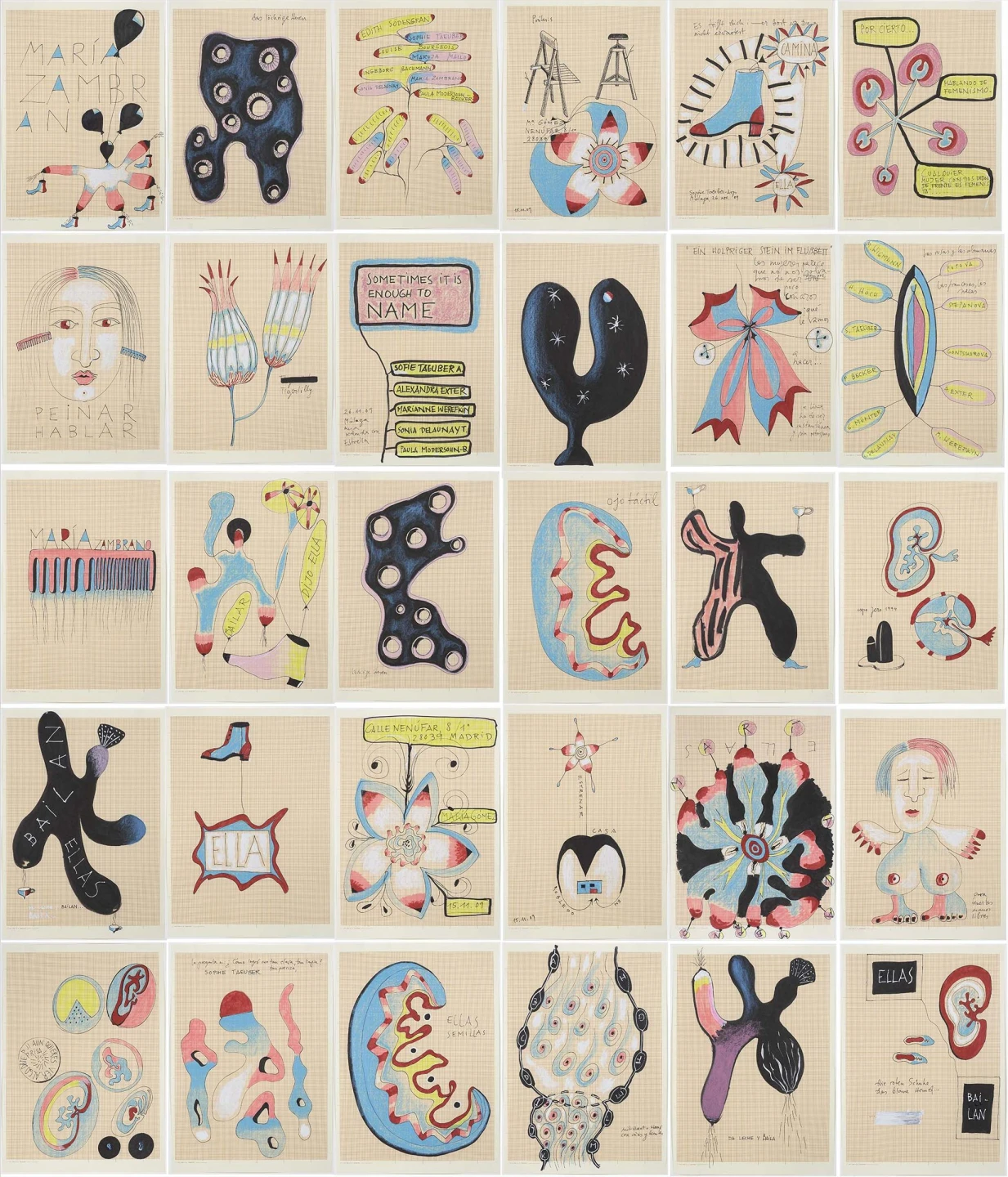
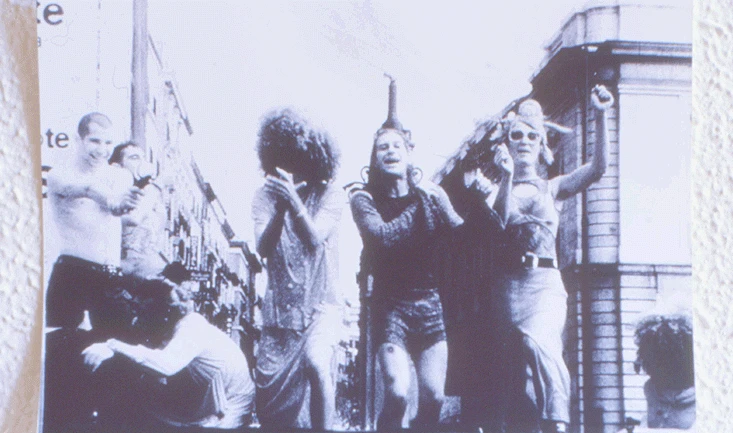
Madrid, ca. 1990 years. ¿Archivo Queer? Project, Museo Reina Sofía
Museo Reina Sofía
This call provides for the award of three research residencies to be carried out between 2020 and 2021. Its aim is to promote research and participation in a reflective process through access to the Museum’s bibliographic and documentary resources, as well as involvement in the research groups linked to the Our Many Europes project.
The university and the museum have often been deemed two distant institutions when not directly coming face to face. The Research Residencies in the Museo Reina Sofía look to integrate both institutions and work spaces by introducing research time in a museum setting as well as the relational capacity in the academic sphere.
Each residency calls on artists, theorists and researchers, both national and international, to analyse, imaginatively and critically, relevant aspects of contemporary culture through their projects. The Museo also fosters modes of experimental knowledge that must pervade education and exhibition programmes, together with the exploration of new ways of envisaging the institution.
Researchers form part of the Museo community during their stay, coming into contact with distinguished interlocutors made up of post-graduate and PhD students from the Study Centre. In a series of seminars, residents will provide students with tools and knowledge in order for them to develop their own projects.
Ramón Areces Foundation Internships
2014-2015
In the first call for the 2014–2015 Research Residencies organized by the Ramón Areces Foundation, the Fundación Museo Reina Sofía, and the Museo Reina Sofía, the Study and Evaluation Committee, after assessing the quality and diversity of the projects, the outstanding profile of the applicants, and the alignment of the project topics with the priority research lines established in the call, proposed Fernando Herrero-Matoses and Luis Enrique Parés Velasco.
Alberto Greco: Hermeneutics of a Collaborative Practice. Fernando Herrero-Matoses
The work of Alberto Greco (1931–1965) presents a participatory artistic praxis and marks the emergence of a new political subject in public space. This research project analyzes the Greco Archive at the Museo Reina Sofía as a platform from which to reassess the historical context of Greco’s work, while also proposing an exploration of his affective network as a process of artistic experimentation.
Fernando Herrero-Matoses holds a degree in Hispanic Philology from the University of Valencia. He completed the Independent Studies Program at MACBA (Barcelona) and holds a PhD in Art History from the University of Illinois.
Localization and Cataloguing of Spanish Avant-Garde Cinema (1961–1982). Museum Practice Project. Luis Enrique Parés Velasco
With the aim of establishing an inventory of Spanish avant-garde films from the period 1961–1982, including their styles and modes of representation, through direct viewing and study (to enable precise analyses of their condition and preservation), Luis Enrique Parés Velasco seeks to create a reference tool that can contribute decisively and rigorously to the creation of a History of Spanish Avant-Garde Cinema. This would support and facilitate the recognition and dissemination of these works, as well as their inclusion in a broader History of Spanish Art.
Luis Enrique Parés Velasco is a historian and documentalist. He has worked as a festival programmer for events such as ZINEBI (Bilbao) and Punto de Vista (Pamplona), and for institutions such as Hamaca and the Instituto Cervantes. He currently works at Filmoteca Española, serves as Artistic Director of Márgenes, and writes for Caimán. Cuadernos de Cine.
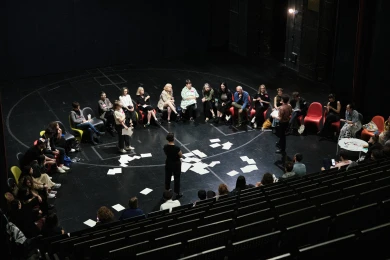
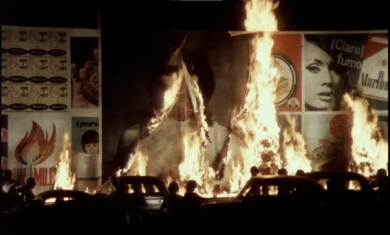


![Joaquim Jordà. Más allá del espejo [Beyond the Mirror], film, 2006](https://recursos.museoreinasofia.es/styles/small_landscape/public/Investigaci%C3%B3n%20y%20educaci%C3%B3n/2.jpg.webp)